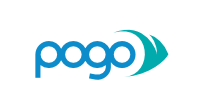Call for Shipboard Training Fellowships
As part of the NF-POGO Capacity Building programme, the Nippon Foundation and POGO are offering fellowships to early career scientists, technicians, postgraduate students (PhD or MSc) and Post-doctoral Fellows who are nationals of and involved in oceanographic work in developing countries to join research cruises and receive training in sample collection and analysis on-board as well as data analysis and interpretation during and after the cruise, and the logistical and scientific preparations prior to joining the cruise.
This call offers the opportunity for Principal Investigators (PIs) leading or involved in research cruises where there is likely to be a spare berth(s), to receive funding to fill that berth(s), receive help with their sea-going work, pass on their knowledge to the next generation, and contribute to capacity building in developing countries.
The fellowship programme provides great opportunity to experience first-hand and receive training in the practical use of advanced ship based marine science equipment and techniques. It provides not only training in specific skills, but also inspiration for projects and new approaches to tackle challenges in home institutes and countries. The exchanges through the fellowship programme are also a great way to promote greater international understanding and tolerance through developing personal relationships across sometimes very different cultures.”
Susan Mærsk Lusseau, National Institute of Aquatic Resources, Technical University of Denmark. Host supervisor (2021-2022).
How to become a Training Partner
This fellowship programme is open to early career scientists, technicians, postgraduate students (PhD or MSc) and Post-doctoral Fellows who are nationals of and involved in oceanographic work in developing countries .
The fellowships generally provide for a one-month visit to the host institution prior to the cruise, participation in the cruise itself (usually between 2 and 6 weeks) and a further month at the host institution after the cruise.
There are several modes in which the fellowships can work:
The host institution can apply for either an Open Fellowship or a Targeted Fellowship.
The Open Fellowship is whereby the successful institution is allocated a fellowship that is then filled via an open call for applications, evaluation and candidate selection process. This additional process will take around 3-4 months from the call for applications being issued to the successful candidate being notified.
The Targeted Fellowship is whereby the host institution applies for a fellowship that is designated to a pre-determined early-career scientist. This is aimed at strengthening existing collaborations between institutions in developed and developing countries. In this case, the institution applying for the fellowship will be required to submit the CV of the prospective fellow as part of their application.
The fellowships can be used for any type of shipboard training (e.g. subject area, sampling and analytical methods) that can be applied by institutes in developing countries. The training can include, for example, sample collection and analysis for biological, chemical or biogeochemical properties, process studies, deployment and/or retrieval of automated equipment for physical/biogeochemical parameters, servicing of moored buoys, etc.
The training can either be multi-disciplinary (rotating between different supervisors) or specific to a particular subject area (and therefore a specific supervisor). The multi-disciplinary fellowships are generally more suitable for less advanced students (e.g. Masters-level) and the project-specific fellowships for more advanced students and researchers (e.g. PhD/ postdoc-level). In the latter case, the fellowship will often take the form of a “mini-research project”, may form part of the trainee’s PhD thesis and/or led to a joint publication.
The fellowship will provide:
- the costs of a round-trip ticket between the home institute of the trainee and the host country;
- travel in the host country between the arrival airport and the host institution;
- subsistence allowance for up to two months’ stay in the host country depending on the particulars of the proposed training;
- travel and accommodation to join the ship (may involve international flight);
- seafaring medical certification and sea survival course (if required).
What is not covered:
- expenses incurred by the fellow in his/her own nation (domestic travel, visa costs, personal insurance etc.)
- bench fees normally charged by the host institution (these will normally be waived by the host institution)
- salary.
Over the years, the feedback we have received from host supervisors has been unanimously enthusiastic. In particular, supervisors have commented that they not only appreciated having an “extra pair of hands” on –board the ship, but also in many cases that the fellowship supported novel research that led to joint publications between the supervisor and the fellow. In almost all cases, the fellowships have led to continued collaboration between the supervisor and the fellow and between their institutes. Testimonials from supervisors and fellows can be found here.
In the first instance, please contact us via this form to outline your proposal.





